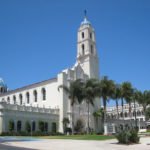The 8 HBCUs in Georgia: Which is Right For You?
Georgia is home to 10 historically Black colleges and universities, with eight of them offering an undergraduate education. The state has one of the highest numbers of HBCUs in the country, only trailing behind Alabama, Georgia, and North Carolina, and tying with Texas. Historically Black colleges and universities offer a fantastic support system, a rich alumni network, and often relatively reduced tuition costs for many students. In this post, we’ll cover Georgia’s eight HBCUs, their key statistical information, and what makes each of them unique. If you’re planning to apply to several HBCUs, you may also want to look into the Common Black College Application, which allows you to apply to up to 58 HBCUs with a one-time application fee. Location: Albany, GA Acceptance Rate: 90% Undergraduate Enrollment: 6,000 This public university was originally established in 1903 and consolidated with Darton State College to become one university under the University System of Georgia in 2017. Their motto is Potential Realized and the curriculum emphasizes liberal arts as the foundation for learning. The school has two satellite campuses in Albany and one in Cordele. Freshmen are required to either live on the urban campus or commute from a nearby parent or guardian’s home. Greek life is prevalent at this school, and the ASU Golden Rams sports teams compete in the NCAA Division II Southern Intercollegiate Athletic Conference. They’re known for their Marching Rams Show Band as well as strong swimming, diving, and women’s soccer teams. Location: Fort Valley, GA Acceptance Rate: 61% Undergraduate Enrollment: 2,300 This public land grant university is located on the second-largest acreage of any Georgia university and in the small city of Fort Valley, the quiet “Peach Capital of the World.” Greek life is prevalent, as are varsity sports. The school is ranked 28th by U.S. News in Social Mobility, which is in part due to its relatively low cost and high value. It is the only existing university that is simultaneously a University System of Georgia institution, a historically Black university, and an 1890 land-grant institution. The latter trait lends itself to FVSU’s strong research and academic opportunities within the agricultural and food science fields, making it one of the strongest public STEM teaching colleges in Georgia. They offer the only veterinary technology program in the state of Georgia. Location: Savannah, GA Acceptance Rate: 29% Undergraduate Enrollment: 3,800 Founded in 1890, Savannah State University is the oldest public historically Black university in Georgia. It is known for its excellent business program (which is one of only five to be accredited by the Association to Advance Collegiate Schools and Businesses). The school has an honors program in each of its three colleges: the College of Business Administration, the College of Liberal Arts and Social Sciences, and the College of Sciences and Technology. Its coastal location allows for the operation of two research vessels via the school’s robust Marine Biology department. In keeping with its strong science focus, Savannah State has formed research and educational partnerships with the Georgia Institute of Technology Regional Engineering Program and the Skidaway Institute of Oceanography. Nicknamed the Tigers, the university competes in the Mid-Eastern Athletic Conference (MEAC) Students are active in Greek life, the Wesleyan Gospel Choir, and the Marching Tiger student band. Location: Atlanta, GA Acceptance Rate: 52% Undergraduate Enrollment: 3,300 Clark Atlanta University is a private, Methodist, and research-oriented HBCU that emerged from the 1988 merging of Atlanta University and Clark College. Under the Carnegie Classification system, Clark Atlanta is considered R2, indicating high research activity. The main campus houses an art museum and seven residential facilities. Incoming undergraduates are required to attend the “CAU Experience,” a five-day, student-led introduction to the college’s traditions and community. The school has a vibrant arts scene, ranging across diverse visual and performing creative fields. Academically, they have four core schools (including one devoted entirely to social work) a cancer research center, and the Center for Undergraduate Research and Creativity. Clark Atlanta University forms part of the Atlanta University Center Consortium (AUC Consortium), the largest and oldest consortium of HBCUs in the US. There are two other colleges in this list—Spelman College and Morehouse College. The AUC system allows students to cross-register for classes in partnered colleges and share resources like the Robert W. Woodruff Library, career guidance services, and a dual-degree engineering program.
Location: Atlanta, Georgia Acceptance Rate: 58% Undergraduate Enrollment: 2,200 Morehouse College is a private and historically men’s liberal arts HBCU. It joins Spelman and Clark Atlanta in the AUC Consortium. The school boasts a 14:1 student-faculty ratio and an impressive set of alumni. Morehouse is the #1 HBCU producer of Rhodes Scholars as well as STEM and liberal arts PhDs. Its downtown location creates close proximity to Atlanta Tech Village, a leading startup hub, and, like all Atlanta schools covered here, several Fortune 500 companies. As part of the school’s general education curriculum, students receive a grounded understanding of African history and African diasporic heritage. Morehouse provides as diverse an array of extracurricular offerings as any other college, placing a particular emphasis on leadership skills and political pursuits. Location: Atlanta, Georgia Acceptance Rate: N/A Undergraduate Enrollment: 50 Morris Brown is a private, coeducational, liberal arts college founded on African Methodist Episcopal principles. Its Campus Ministry provides opportunities for faith-based counseling, community, and development. All students at Morris Brown take lower-division courses, otherwise known as the Core Curriculum, followed by upper-division courses related to their chosen major. The college offers four majors: Music (B.A.), Organizational Management and Leadership, Global Management and Applied Leadership, and Psychology (B.S.). Morris Brown College is not currently accredited as of mid-February, 2021. Therefore, students do not have access to federal financial aid. The college is currently seeking accreditation from the Transnational Association of Christian Colleges and Schools (TRACS). Location: Augusta, Georgia Acceptance Rate: 40% Undergraduate Enrollment: 400 Paine College is a private, Methodist liberal arts HBCU. It’s known for its intimate and relaxed atmosphere, as illustrated by its 10:1 student-faculty ratio. The school allows local high school students to take Paine college courses through its dual enrollment program. The school has 22 student organizations in addition to the selective Paine College concert choir, which prepares up to 25 religious and secular performances each year. The Wesley Fellowship, Paine College’s United Methodist Campus Ministry, provides another faith-based outlet. Participants engage in religious and social activities like fundraisers, community service projects, parties, and retreats. Location: Atlanta, Georgia Acceptance Rate: 39% Undergraduate Enrollment: 2,100 Spelman College is a private historically women’s liberal arts college in the AUC Consortium. It is located in the heart of Atlanta, GA, next to Clark Atlanta University and Morehouse College. The student culture is driven towards social change, environmentalism, and community service. The school doesn’t have any varsity sports, but it does have intramural sports teams. The campus hosts the Spelman College Museum of Fine Art and is ranked as the #1 HBCU by the 2020 U.S. News & World Report. It is well-renowned for the social mobility it offers its students, study-abroad opportunities, and high production of Gilman Scholars. While looking through this list, it’s possible that a few stood out to you as potentially strong fits, both academically and socially. Please note that their acceptance rates don’t necessarily reflect your individual shot at a school; depending on the strength of your application, your shot at acceptance could be much higher or lower. To get a better sense of your chances of admission, we recommend using our free admissions calculator. We’ll use your grades, test scores, and extracurriculars to estimate your odds and even provide tips on improving your profile. You can also search for best-fit schools based on your chances and other factors like size, location, majors, and more. We’re here to help when it comes to streamlining this often-stressful process! What’s Covered:
The 8 Undergraduate HBCUs in Georgia
1. Albany State University
2. Fort Valley State University (FVSU)
3. Savannah State University
4. Clark Atlanta University

5. Morehouse College
6. Morris Brown College
7. Paine College
8. Spelman College
What Are Your Chances of Acceptance?


